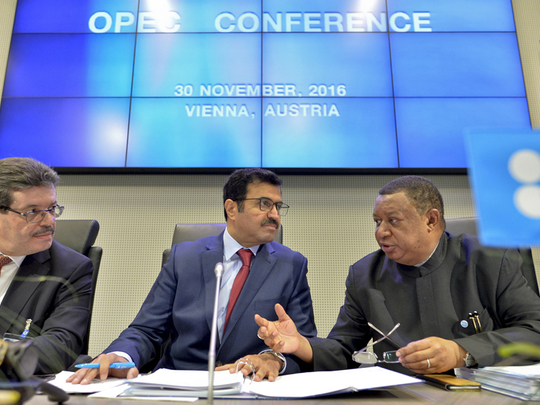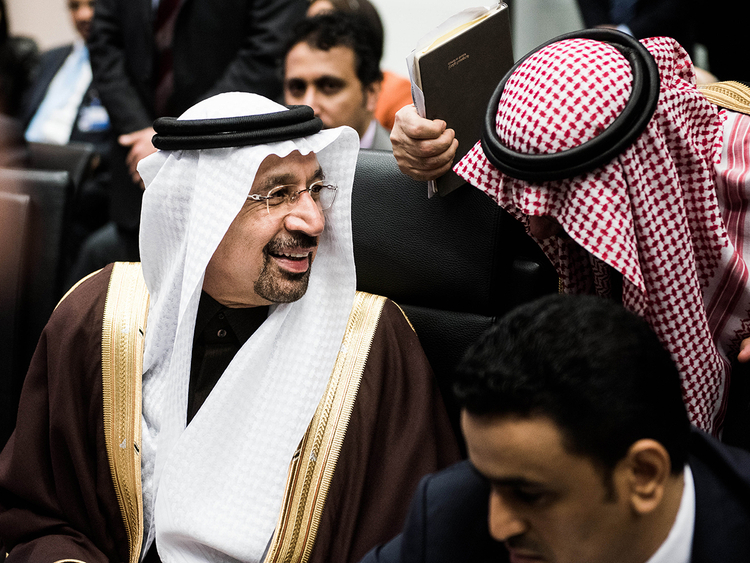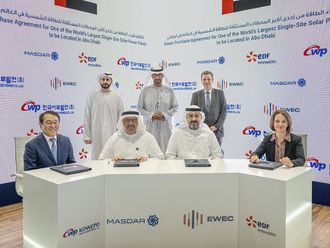
Dubai, Abu Dhabi: Global oil inventories will start to fall by the second quarter of the year, and crude-producing countries will decide in May whether to extend their collective output cuts beyond the first half, OPEC Secretary General Mohammad Barkindo said.
“We have our target in accelerating those draw-downs to bring them closer to the five-year level - that is our target,” Barkindo told reporters Thursday at an energy conference in Abu Dhabi. The Organisation of Petroleum Exporting Countries isn’t targeting a specific price for crude, he said.
Global macroeconomic numbers have responded “positively” to the agreement between OPEC and non-OPEC producers to pare output in a drive to end a worldwide supply glut, Barkindo said. OPEC’s Nov. 30 decision reversed the group’s policy of pumping without limits, and other major producers including Russia have promised cuts of their own in a joint effort to support prices. Benchmark Brent crude was 37 cents higher at $55.47 a barrel in London at 9:18 am local time.
The cuts began on Jan. 1 and are to stay in effect though June. Oil markets should be in balance in six months, and it’s premature to decide whether additional cuts will be needed, United Arab Emirates Energy Minister Suhail Al Mazrouei said at the Atlantic Council Global Energy Forum in Abu Dhabi. Countries with a naturally declining output of oil are contributing to a decrease in global production, he said.
Total CEO
Total SA Chief Executive Officer Patrick Pouyanne, speaking at the same event, said he expects that the decline in oil inventories will take two years.
Barkindo expressed confidence in the level of commitment from all countries participating in the agreement to decrease supply.
“I met with the Iraqi minister this morning,” he said at the event. “He has reassured me Iraq will implement its part of the deal fully and on a timely basis.”
A committee of OPEC and non-OPEC producers responsible for monitoring compliance with the cuts will hold its first meeting on Jan. 22 in Vienna, Barkindo said. The committee, with Kuwait as chairman, also includes Algeria, Venezuela, Russia and Oman.













